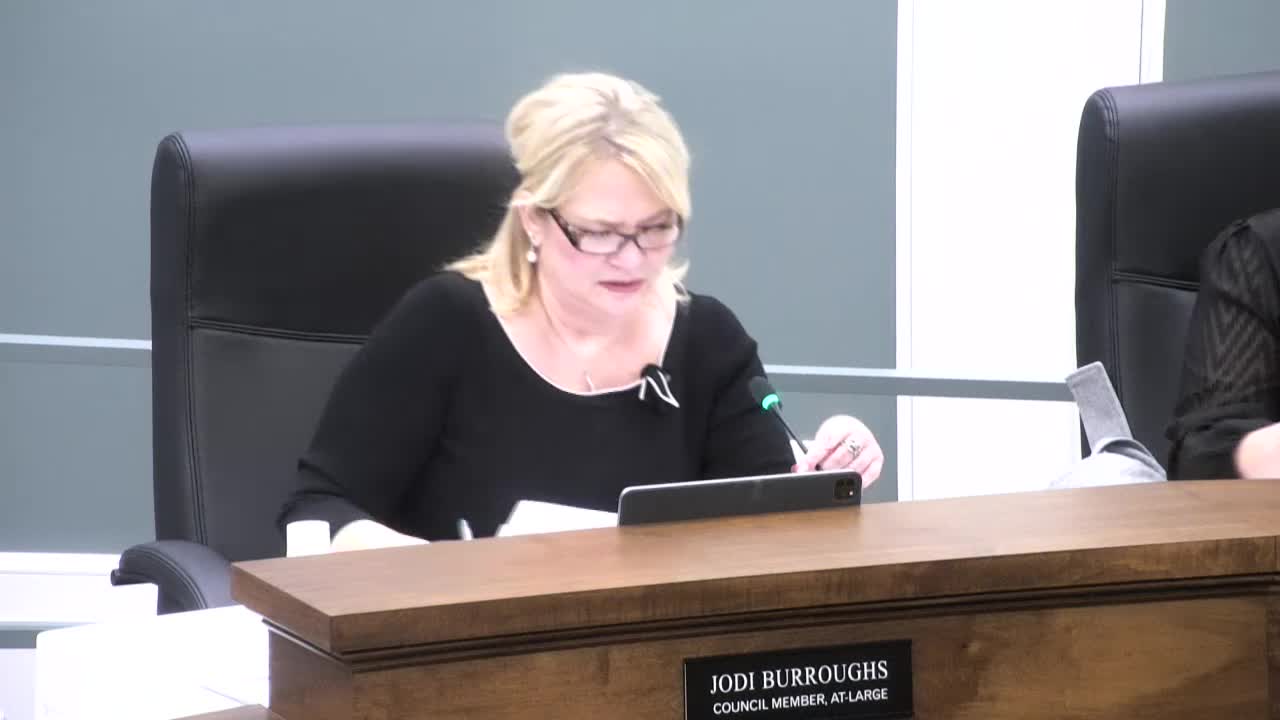Grove City Council approves special-use permit for Ohio Cannabis Company at 1947 Stringtown Road after waiving 500-foot residential rule
Get AI-powered insights, summaries, and transcripts
Subscribe
Summary
Council voted to approve a special-use permit for a marijuana dispensary at 1947 Stringtown Road, waiving the city's 500-foot residential buffer but rejecting a request for a drive-through; the permit will expire if the applicant does not obtain a provisional state license within 90 days.
Grove City Council on Jan. 6 approved a special-use permit for the Ohio Cannabis Company to operate a cannabis dispensary at 1947 Stringtown Road, waiving the city's 500-foot residential buffer but denying a requested drive-through. Councilers also added a condition that the permit will become null and void if the applicant does not obtain provisional licensing within 90 days.
The decision follows a public hearing during which Brian Wingfield, a representative of the Ohio Cannabis Company, asked council to allow two deviations from the city's marijuana rules: a reduction of the residential-distance requirement from 500 feet to roughly 390 feet and permission for a drive-through window to serve medical patients. "The drive thru is a good way for [medical patients] to receive their medication," Wingfield said, adding that strict state regulation and on-site fulfillment limits public access to product display.
The request had been denied by the Grove City Planning Commission. Mr. Rausch of the city's planning and development staff told council the commission voted 0-5 against the application and that the city's code measures the 500-foot buffer from the dispensary site to property boundaries of residential uses. "That distance was established and measured based off the interpretation of the code," Rausch said.
Council debate centered on whether to enforce the 500-foot rule as written and whether to allow a drive-through for medical patrons. Council member Christopher Holt noted Grove City voters supported Issue 2 in 2023 and observed council had deliberately adopted stricter local rules in August 2024. "We made it even more strict than what the state said," Holt said, citing the 500-foot residential buffer and a prohibition on drive-throughs included in the local ordinance.
Council moved and approved an amendment to waive the residential buffer for this site. A separate motion to permit a drive-through limited to medical-card holders failed on a roll call vote. Council later approved a motion adding a 90-day requirement that the applicant obtain provisional state licensing or have the special-use permit become null and void. Following those amendments, council voted to approve Ordinance C6024 as amended.
Planning staff and several council members emphasized technical limits on how the 500-foot distance is measured. Rausch and council members pointed out the code measures from site boundary to boundary, not from building face to building face, which explains discrepancies between the applicant's building-to-building measurements and the code interpretation. Council also noted curbside pickup remains allowed under the city's special-use provisions, and several members encouraged curbside as a compromise.
There was no public speaker signed up against or for the permit beyond the applicant. The planning commission's recommendation of denial and the council's subsequent decision to waive the residential restriction and deny the drive-through request illustrate the council's exercise of local discretion within the framework of state regulation.
The applicant was advised to complete state permitting and to proceed with city permits and build plans if the amended permit remains valid after provisional licensure is secured.
Copies of the amended special-use permit and voting record will be available in the municipal clerk's office and the public record for this meeting.
